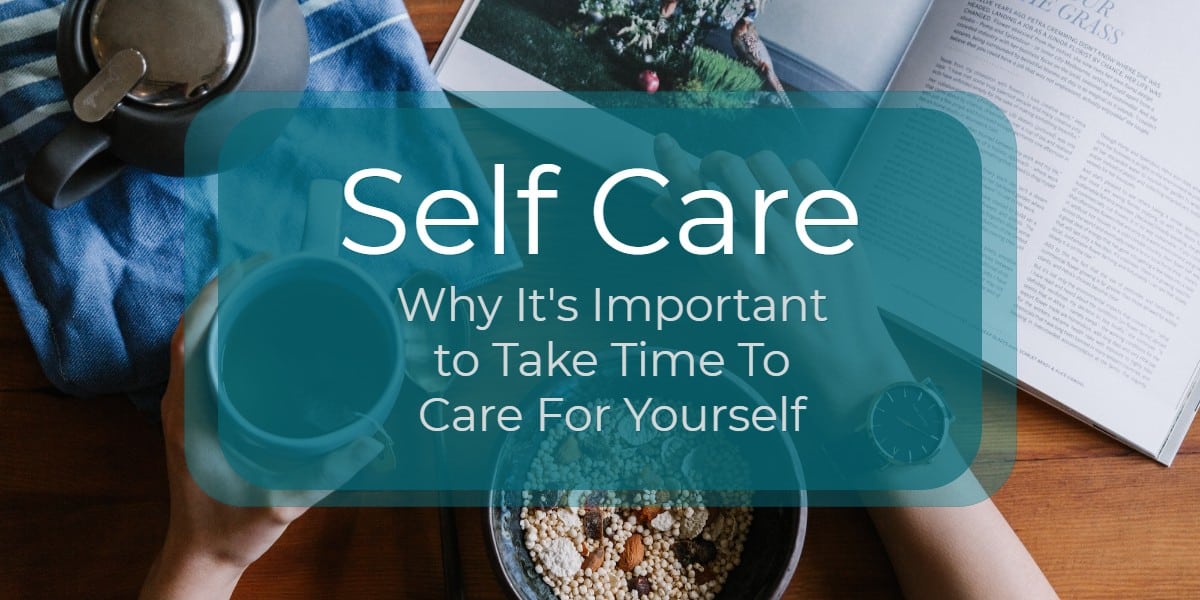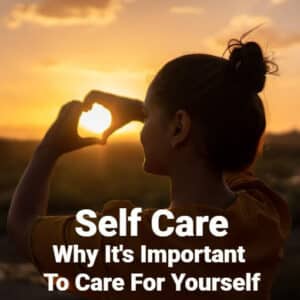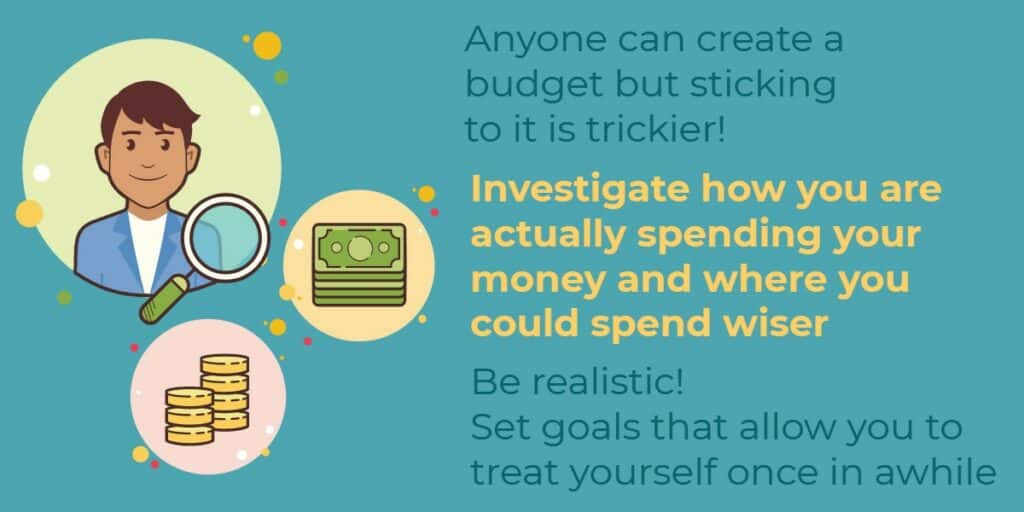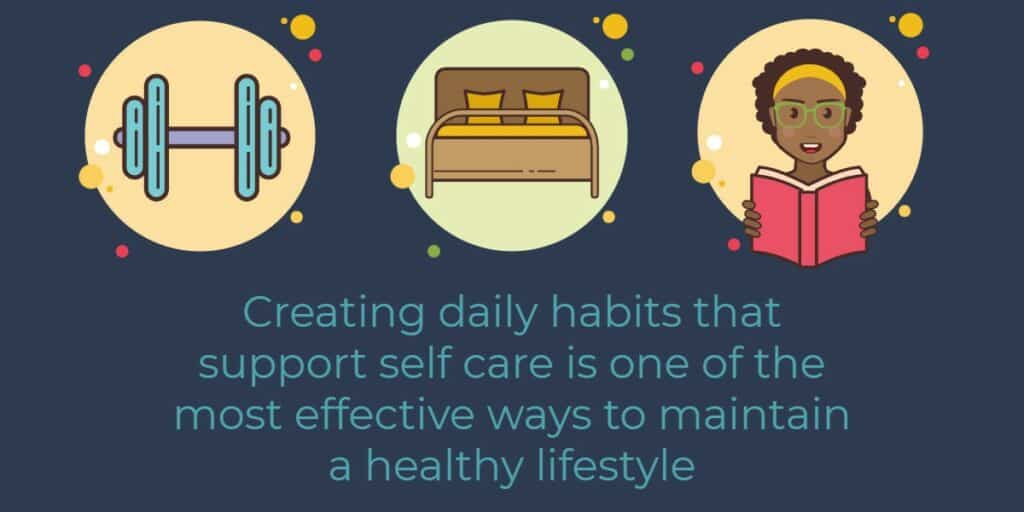Self Care: Why It's Important to Take Time To Care For Yourself

We all have busy lives and it’s easy to forget to take care of ourselves. But it’s important to remember that self care is essential to our well-being.
What is Self Care?
Self-care is referring to the things we do to take care of our physical and emotional health and well-being. Being healthy is the ability to lead the life you desire, free from pain, disease, and other health-related issues.
To be “healthy” you need to take care of your body, mind, and spirit, by doing positive things that support your physical, mental, and emotional health. This might include eating nutritious food, exercising, and staying away from substances that are harmful to your body.
Being a necessary and important part of self-management and self-development, self-care is an attitude that reflects the focus on taking care of ourselves. If we want to remain physically and emotionally healthy, self care is a must.
If you have ever taken a commercial airline flight, you’re likely familiar with the “Oxygen Mask Rule.” In it, instructions are given that if the cabin loses air pressure, oxygen masks will drop from above and that you should place the oxygen mask over your face before trying to help others.
This might seem to be selfish by some, but taking care of yourself is NOT being selfish in any sense of the word. When breaking the rule, we not only increase the risk to our health but also the health of those who rely on us. If you don’t take care of yourself, you can’t take care of anyone else. And if you don’t take care of yourself, who will? With self care, you are being both responsible and self-disciplined.
The Importance of Self Care

For example, when was the last time you made an extra effort to take care of yourself? If you are like most people, it was probably quite some time ago.
You may question or not see the value of taking care of yourself right away. The benefits of self care, however, are many. These benefits include, among others, reduced stress, improved mood, increased energy levels, and better interpersonal relationships with family and friends. In fact, research has shown that self-care can significantly improve one’s overall health and emotional wellbeing.
Self-care means that you treat yourself with respect, kindness, and compassion, by doing things to improve your life. With a healthy set of self-care habits, we become more involved, engaged, and effective in our personal and professional lives.
Understanding the difference between neglecting and taking care of you and your body’s needs is important. Think of self care as an investment in yourself, an investment having a great return. You are worth it!
Getting Started with Self Care
Most often, we only associate self care with proper hygiene and grooming. However, there are other important aspects to pay attention to as well. You need to take care of your body, mind, and spirit by doing positive things that support your physical, mental, and emotional health. Self care begins with your thoughts and then deciding to take care of yourself.
Self care is not a one-time event or strategy—it is something that requires consistent and ongoing maintenance. We need to take breaks from time to time to rejuvenate our minds, to maintain optimal levels of energy and optimal levels of sleep. It’s important to understand and recognize the signs of exhaustion, whether it be physical, mental, or emotional.
Keep track of what you are doing and how you are feeling. (Keeping a journal is a great tool for this!) Listen to your body when you feel any changes to your energy level and take the actions needed to correct it. It is also important to be fully open and honest with yourself. When working towards your goals, making excuses that either set or hold you back is not caring for yourself.
Taking Care of Your Physical Health
Many people will say you need to work 100 hours a week if you want to achieve your goals. Those people must be robots! While going after your goals is important, self care is taking a break when you need it. Taking the time to recharge yourself is vital in taking care of you. After all, even robots need to get a “recharge” every once in a while!
To keep your physical and mental health and maintain your peak performance:
Taking Care of Your Emotional Health
Emotional self-care is a lot like physical self-care, as it is important to have good sleeping habits, that you eat right, find time for exercise, and deal with stress. For many, though, the idea of emotional self-care feels a lot more complicated.
Emotional self-care requires us to understand how we are feeling, put words to it, and then take steps to develop a more positive outlook on life. This can be hard for people who have developed the habit of ignoring how they feel emotionally as a survival mechanism.
The goal here is to help you create a routine of emotional self-care that allows you to understand, name, and physically respond to your emotions in a way that is both healthy and productive.
Emotions are a key element of being a human being, so it’s important to look after them. Emotional self-care is the process of looking after yourself when you are going through an emotional experience. If you find yourself feeling sad, stressed, or anxious, emotional self-care can help you work through the feelings and find a solution to whatever caused them. You can do your emotional self-care by keeping your mind focused on positive emotions, engaging in a relaxing activity, and/or getting professional help if you need it.
The world is a crazy place! In all this craziness, many people put a lot of pressure on themselves to be happy. But what does happiness mean? Is it having the perfect relationship? The perfect job? The perfect bank account balance? A combination of all these things?
The truth is happiness and fulfillment is not (and cannot) be defined by material possessions. It’s only when we are at peace with ourselves—when we’re comfortable in our own shoes—that we can find true happiness. While that may sound like a lofty goal, it is not an impossible one.
When we are young, we often feel invincible… that we can take on the world! But as we age, we face more responsibilities. With those responsibilities often come obstacles and suddenly it seems like we have no time for ourselves. Our lives become more stressful, and taking care of our emotional health often gets pushed to the side.
This is why it’s so important to practice and get into a regular routine of self-care. Self-care is the act of taking time to keep yourself healthy and happy. It’s about looking out for your mental, emotional and physical health in areas like diet, exercise, sleep, and even in social interactions.
It might sound strange to think that you can only have fun doing “grown-up” activities. But if you can’t enjoy life’s little pleasures now and then, what can you enjoy? Just because you’re not a teenager anymore, doesn’t mean you can’t enjoy the careless days of your youth. Just because you’re not a toddler, doesn’t mean you can’t enjoy a big plate of spaghetti. You might also take that “spaghetti” and turn it into a beautiful, handmade necklace. (See where we’re going here?)
Taking Care of Your Financial Health
The concept of self-care has been around for a long time, but the term has gained a lot of popularity recently. Most of the articles you find on the subject have a focus on physical self-care, such as eating right, exercising, etc. Physical health is important, but your financial health is just as vital. To ensure you are living as comfortably as possible, you need to have a handle on your money and finances.

There are many challenges that can make this difficult for us. There are rent or mortgage payments, along with utilities, services, and all the other costs associated with having a place to live. Then there are car payments, gas, insurance, and maintenance costs. There may also be student loans needing to be repaid, etc. The list goes on and on…
But there are ways to take control of your money and achieve financial success. The place to start is a budget. Developing a budget might sound a bit complicated, but it isn’t as hard as you might think. Start by taking an inventory of your spending to see where you might be splurging. You may find things that you aren’t even aware of, something like eating out more often than you used to. By taking a week or two to track and analyze your spending habits, you can then determine if there are any areas where spending cuts can be made.
Setting Personal Boundaries
Many people, especially young adults, struggle to find their place in the world. This can be particularly true for people who are frequently placed in one social situation after another. They may wonder how they are supposed to know who to talk to, or if they should be polite or assertive when it comes to dealing with other people.
When it comes to self-care, the term “boundaries” refers to the limitations we place on our relationships with others, primarily being with our friends. These personal boundaries are put into place to assure we don’t let our friends walk all over us, or when we find that we don’t have any time for ourselves.
There may be times when you’re asking yourself questions like, “Why do we even need friends? Are they worth the time and energy?” Even greater questions may arise when trying to figure out how to respond to a friend who is not respecting your boundaries.
You are not alone. Many of us face this common problem in our social relationships with others.
Lowering Your Stress Level
Stress is a physical, psychological, and emotional state. It can be the result of external sources, such as work, family, or social situations. It can be the result of internal and unconscious processes as well.
The root of stress is negative thought patterns, which trigger the body to feel stressed. By learning to adopt positive thought patterns, you can decrease your stress, improve your mood, and become a more relaxed, more productive person.
The first step in reducing stress is learning to recognize when stress is taking over your life and making a conscious effort to bring it under control. But how do you do that? It is important to understand the different categories of stress and the effect they have on your body and your emotions. (See https://www.mentalhelp.net/blogs/types-of-stress-and-their-symptoms/)
It is easy to experience stress when you have a lot on your plate. With the demands of college, work, social activities, etc., stress can easily creep in and take over your life. You may have trouble sleeping and feel tired all the time. You can see it written all over your face and other people are starting to notice, too. You are very tense, stressed out, and can’t seem to find a way to unwind.
Fortunately, there are plenty of ways to live a stress-free life, no matter how hectic your schedule may be. (Hint: It is not all about avoiding stress!) Take a deep breath. Try doing yoga or meditation. These activities are two effective ways to lower your stress level.
Create Daily Habits that Support Your Self Care
There is a large range of activities that can contribute to our self-care. Likewise, there are many daily habits we can do to help us be healthier, make us feel better, and become more successful.

For example, eating a healthy breakfast in the morning will help you feel more energized throughout the day. Exercising will help you be (and feel) healthier. Meditating will help you relieve stress. All of these things, combined with others, will help you to become a better you.
Conclusion
Being both physically and emotionally fit—along with a good mental attitude—is essential to living a happy life. This is easier said than done, as there is no single thing that will make it happen all at once.
If you’re looking to improve yourself, you’ve come to the right place. RationalWise is a site dedicated to self-development and self-improvement of your emotional health and your well-being.
We provide all the tools you need to live a better life, learn how to deal with challenges, solve problems, and perhaps even find love or deeper, more meaningful relationships. Explore our site, blog posts, and other educational self-development resources for additional information to learn how we can help you become a better you. Take care of yourself and be happy, healthy, and fit!
